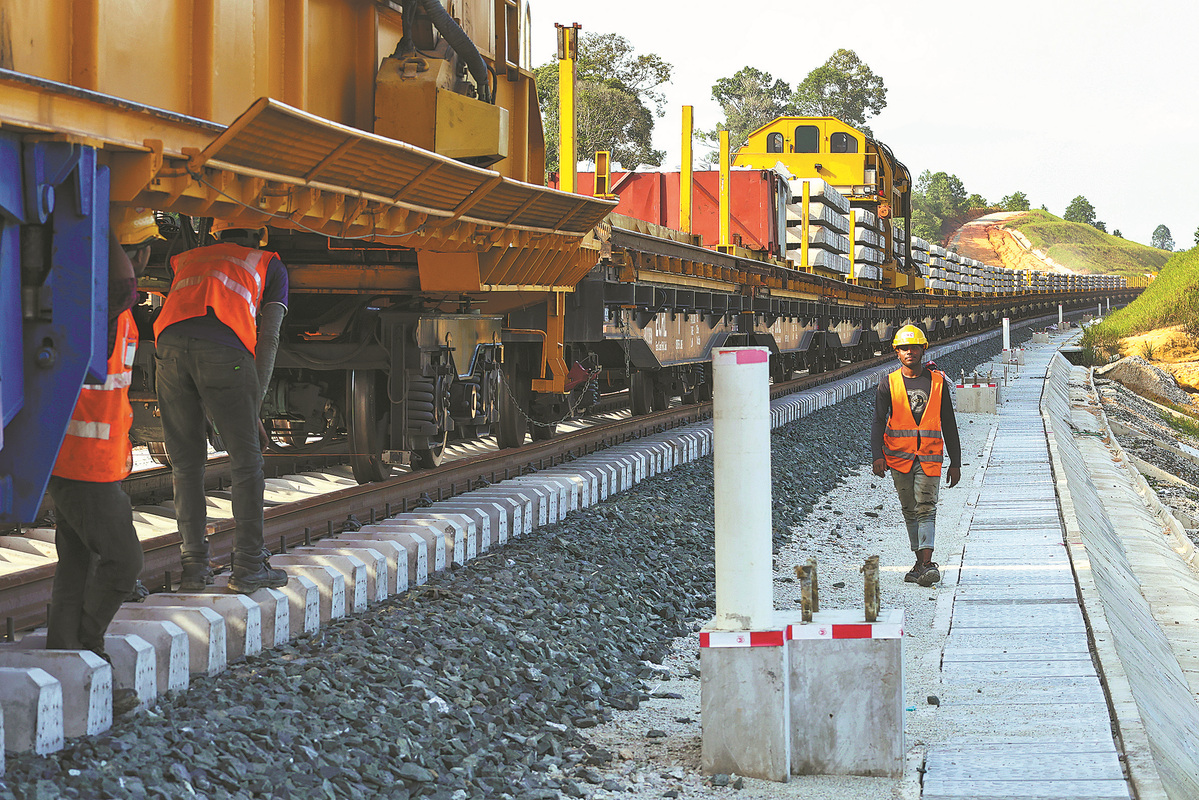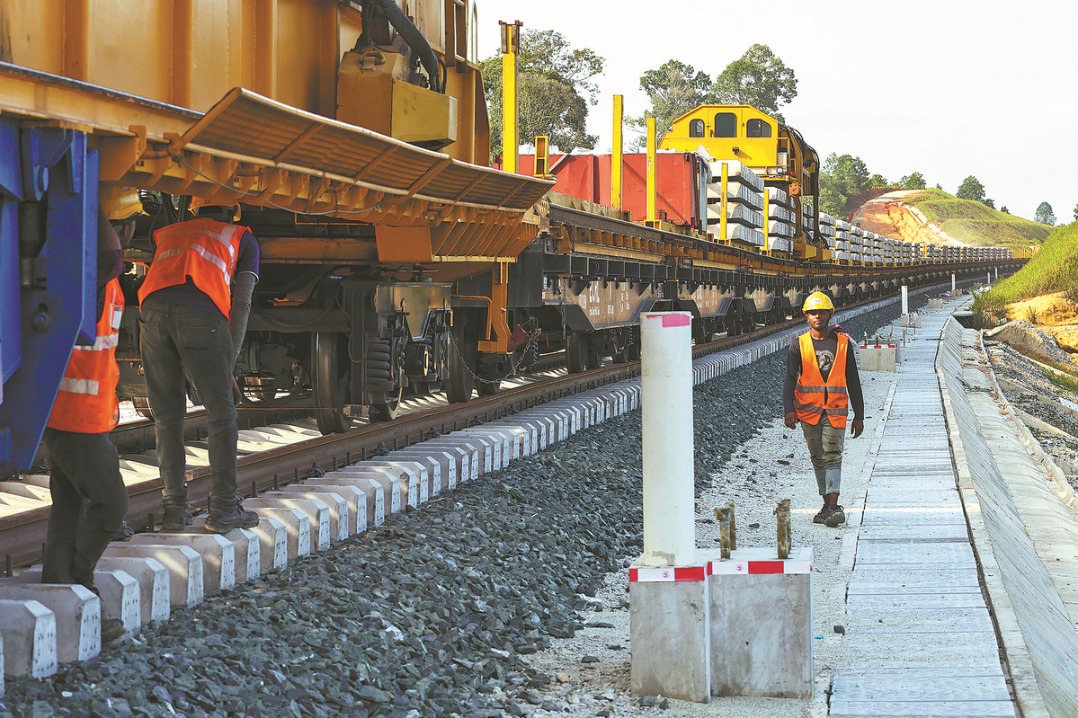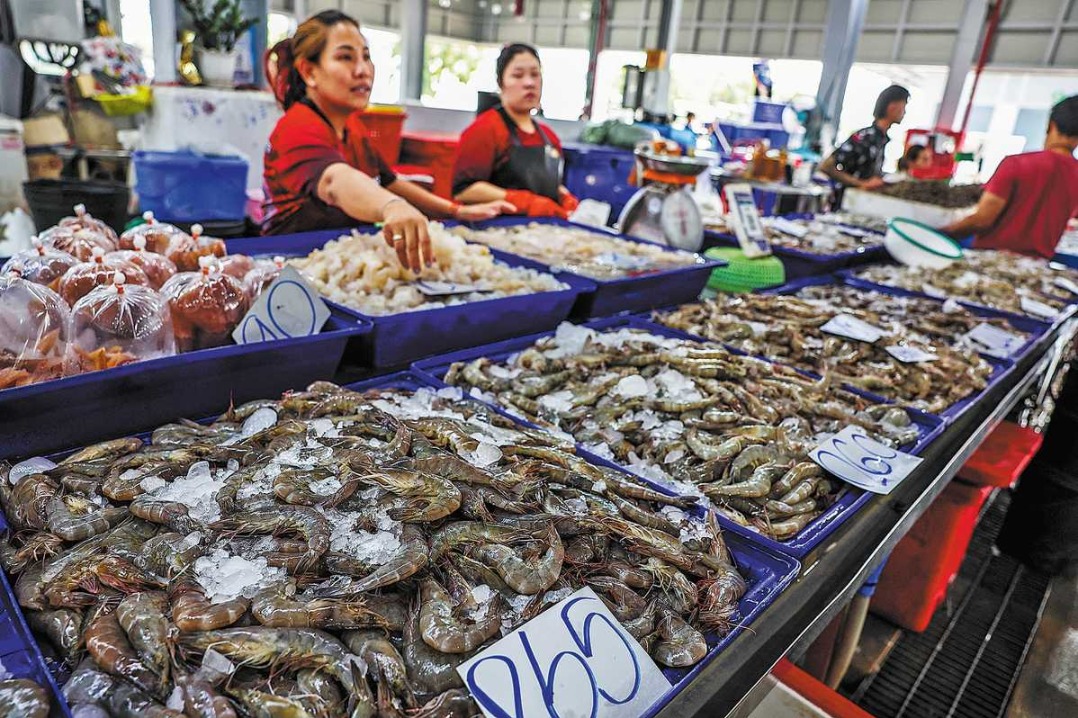Bilateral trade helps China-Malaysia ties
Infrastructure and agriculture prime sectors of business


As regional economic integration and the Belt and Road Initiative continue to expand, trade cooperation between China and Malaysia is experiencing robust momentum. From infrastructure and agriculture to bilateral trade and industrial collaboration, the two countries are entering a new stage of multifaceted and high-level engagement, according to officials and trade analysts from both sides.
The latest data from China's General Administration of Customs indicate bilateral trade between China and Malaysia reached an all-time high of $212.03 billion in 2024, marking a year-on-year increase of 11.4 percent. China exported $101.46 billion worth of goods to Malaysia, up 16.1 percent year-on-year, while imports from Malaysia stood at $110.57 billion, a 7.4 percent increase.
China has been Malaysia's largest trading partner for 16 consecutive years, while Malaysia is China's second-largest trading partner in the Association of Southeast Asian Nations and the largest importer of Chinese goods in the region. Notably, China's primary imports from Malaysia include integrated circuits, computers and components, palm oil and plastic products. Key Chinese exports to Malaysia include computers and components, ICs, clothing and textiles.
In particular, agricultural products have emerged as one of Malaysia's primary export categories to the Chinese market, with palm oil and durians continuing to gain popularity. In August 2023, Malaysia's fresh durians entered the Chinese market for the first time, expanding consumer choices and opening new opportunities for Malaysian agricultural exports. Malaysia became the fourth ASEAN country authorized to export fresh durians to China, following Thailand, Vietnam, and the Philippines. Previously, Malaysia mainly exported frozen durians.
Arthur Joseph Kurup, Malaysia's deputy minister of agriculture and food security, said this development has significantly enriched China's fruit market and expanded export channels for Malaysian agricultural products.
Flagship project
China's investments in Malaysia are increasingly diverse, with a significant focus on infrastructure. Chinese companies are engaged in constructing railways, bridges, hydropower stations, roads, subways and telecommunications infrastructure.
A cornerstone of the cooperation is the East Coast Rail Link, constructed by China Communications Construction Co. Spanning more than 600 kilometers, the railway starts in Kota Bharu on the border with Thailand, travels south to Kuantan, and then turns west toward Port Klang, cutting across the Malaysian peninsula.
Scheduled to begin operation by 2027, the project reached a major milestone in January with the successful laying of track in sections covering approximately 400 km between Maran in Pahang and Kota Bharu in Kelantan. In April, the 3.5-km-long Dungun Tunnel 1 was completed two months ahead of schedule. To date, 38 of the project's 41 tunnels have been completed.
"Dungun Tunnel 1 is a crucial link between Kota Bharu and Port Klang," said Darwis Abdul Razak, CEO of Malaysia Rail Link, the project owner. "Its smooth completion was made possible by the exceptional efforts, cutting-edge technologies and rigorous safety standards implemented by CCCC's project teams." He added the project has prioritized environmental protection and minimized disruption to local communities during construction.
































